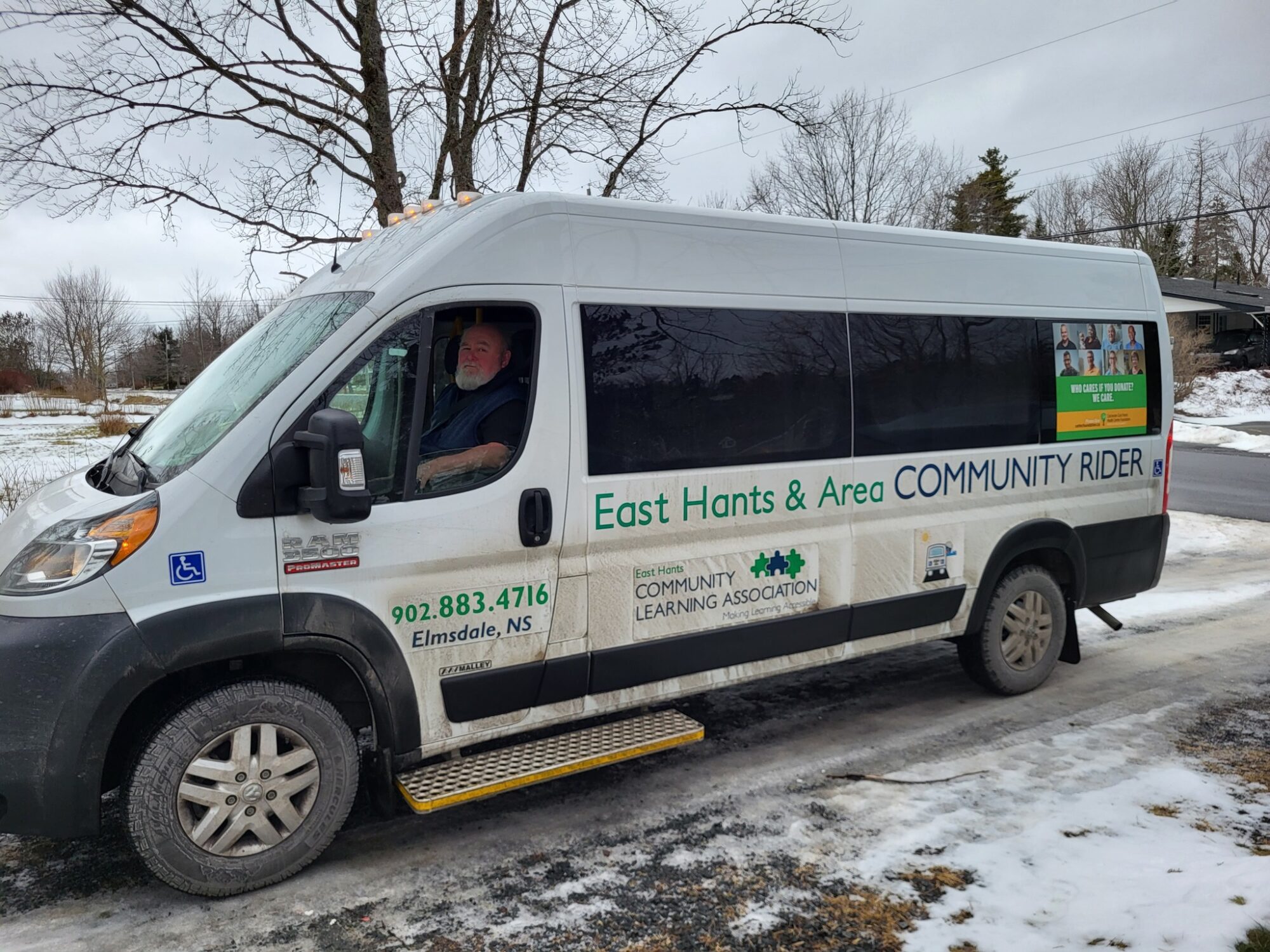East Hants transit body gets money from N.S., Ottawa
New eco-conscious vehicles will help serve clients, say transport providers

caption
Over 20 rural communities have ride services in Nova Scotia. On Thursday, East Hants Community Rider received $130,000 for new vehicles from the provincial and federal governments.A rural transportation service in East Hants is receiving $130,000 to buy more eco-friendly vehicles for door-to-door services.
The federal and provincial governments are covering the cost of one electric vehicle and one hybrid vehicle for the East Hants Area Community Rider, a door-to-door transportation service.
Most of the money, about $105,000, is coming from the federal Rural Transit Support Fund, launched in 2021. The rest comes from the province.
“It’ll enhance our fleet, make us a bit more green and a bit more efficient,” said Tanya Burke, executive director of the East Hants Learning Association, which operates the service, in an interview. The organization may now have the resources to add new routes to the service, she added.
Burke attended the announcement Thursday afternoon in Elmsdale. Kody Blois, MP for Kings-Hants and Hants East MLA John A. MacDonald also attended.
Burke said before the availability of federal funding, it was “nearly impossible” for the organization to replace vehicles, as it was too expensive.
The East Hants Area Community Rider provides door-to-door car rides in rural areas for those who do not have a car or cannot drive themselves.
The federal government is spending more than $2.7 million on 12 rural transit programs in Nova Scotia, according to a December release.
Jessie Greenough, executive director of a similar transit service based on the Eastern Shore called MusGo, said her organization has received more than $600,000 in grants from the fund in the last year.
This year, MusGo bought three new electric vehicles and a hybrid wheelchair accessible van. Greenough said the fund also covered solar panels and a heated garage to charge the vehicles.
Greenough said this means they are “driving on sunshine.” The money saved by going green can be put back into improving service, she said.
Burke said by cutting back on the cost of gas, East Hants Area Community Rider can keep its rates as affordable as possible.
She said this is important because the service is used to access essentials such as medical appointments or grocery stores.
“It’s your lifeline,” said Burke. “It’s the difference between ‘I can’t go anywhere’ and ‘I can access everything I need.’ ”
About the author

Olivia Piercey
Olivia Piercey is a fourth year journalism honours student. When not working for The Signal, she can found hosting The Basement Couch on CKDU,...
